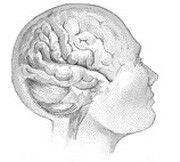Article
Parkinson Drug Seen as Breakthrough Therapy
Author(s):
The US Food and Drug Administration (FDA) gave a breakthrough therapy designation to pimavanserin (Nuplazid/Acadia Pharmaceuticals) for the treatment of Parkinson's Disease. The drug, a proprietary small molecule that is a selective serotonin inverse agonist, may also hold be useful in other mental illnesses, including Alzheimer's Disease and schizophrenia, according to Acadia.

The US Food and Drug Administration (FDA) gave a breakthrough therapy designation to pimavanserin (Nuplazid/Acadia Pharmaceuticals) for the treatment of Parkinson’s Disease.
The drug, a proprietary small molecule that is a selective serotonin inverse agonist, may also hold be useful in other mental illnesses, including Alzheimer’s Disease and schizophrenia, according to Acadia.
The biopharmaceutical company is based in San Diego and specializes in new products for neurological and related central nervous system disorder.
In an announcement Sept. Acadia hailed the FDA decision as holding hope for those Parkinson’s patients who suffer from disease-related psychosis.
The company expects to file a new drug application for the product by the end of the year, based on the results of a Phase III trial that led to the FDA decision.
Parkinson’s psychosis can cause hallucinations and delusions and make life more difficult both for patients and their caregivers, the company noted in its announcement.
The FDA breakthrough therapy designation is meant to speed of the development and review of drugs that treat serious of life-threatening conditions where there is no approved therapy.
FDA protocols call for informing a company within 60 days of receiving a new drug application as to whether it will also evaluate a new drug on a priority review basis.
In the Acadia announcement, Uli Hacksell, PHD, the company’s chief executive, said “Nuplazid represents a potential new class of psychosis medication and could be the first drug approved in the US for patients with Parkinson’s disease psychosis.”
The drug is also in Phase II development for possible treatment of Alzheimer’s disease and has completed a Phase II trial for schizophrenia.
Of about 5 million people worldwide who have Parkinson’s disease, about 40% develop psychosis, according to Acadia.




